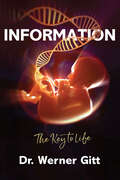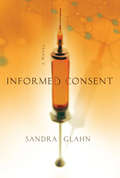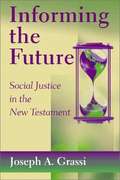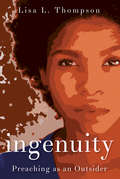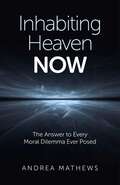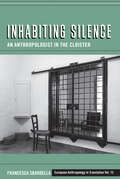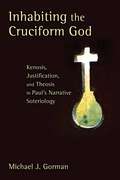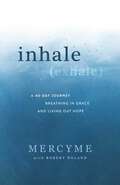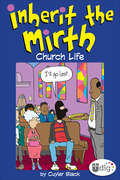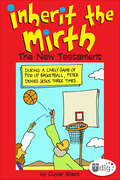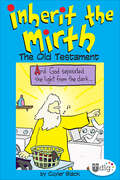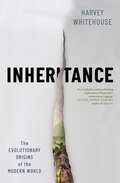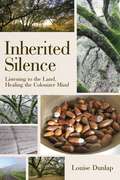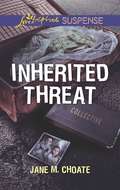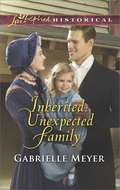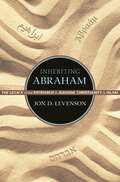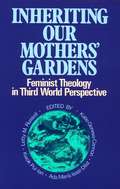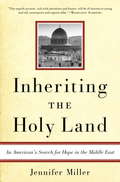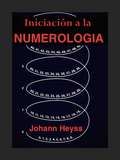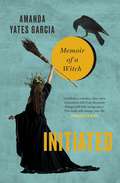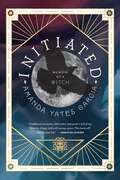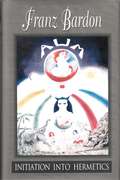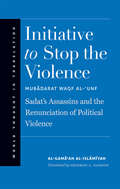- Table View
- List View
Information: The Key to Life
by Werner GittGo Beyond the Boundary of Science and Discover the Divine Source of Universal Information Consider the complexity of information within our bodies and all other life on this planet, deliberately programmed into us by a powerful, all-knowing God. Engineer and author Dr. Werner Gitt has created a compelling argument in the evolution vs. creation debate with a groundbreaking technical exploration of the Theory of Universal Information. He refutes the worldview in which matter or energy is the sole entity and cause for everything. Lays out the scientific logic for an alternate worldview in which a purposeful Creator God is the best and only rational alternative. Understand the true definition and source of information found within life Discover what can be learned just from the magnificent coding system found in the DNA/RNA system containing the richest source of information known to mankind as well as an incredibly complex, perfectly integrated molecular infrastructure to implement this information
Informed Consent
by Sandra GlahnDr. Jeremy Cramer is a young doctor on the verge of a cutting-edge medical discovery. But his research is derailed when Cramer's son is infected with a rare fatal disease. Now as he races against time to save his child's life, Cramer will make a decision that could shatter his career. Informed Consent is a pulse-pounding medical thriller that complements the current popularity of hospital dramas. With non-stop suspense, snappy dialogue, and witty humor, author Sandra Glahn takes a look at some of today's hot-button issues through this provocative story.
Informing The Future: Social Justice In The New Testament
by Joseph GrassiThe roots of social justice run deep -- right back to the Bible. Now, in Informing the Future, scripture scholar, writer and teacher Joseph A. Grassi takes readers back to the New Testament to explore the place of social justice -- the just distribution of economic, social and cultural resources to all people -- as envisioned and practiced in its pages. It is there, the author demonstrates, that we will find the inspiration that challenges us, sustains us and brings hope to our world today.
Ingenuity: Preaching as an Outsider
by Lisa L. ThompsonIngenuity introduces a theology and practice of preaching that emerges from the faith and wisdom of black women. Preaching has been resourced and taught from a narrow field of cultural or gendered experiences, historically. Without much support from established channels, black women are left to "figure it out" on their own, and others discern how to preach from a limiting scope.The best preachers understand their own voices and the voices of others. They stretch and grow, and this enables them to preach more effectively. Ingenuity equips readers to negotiate tradition, life experiences, and theological conviction in the creative work that makes way for sacred speech.With Ingenuity, Lisa Thompson offers deep insights for anyone seeking to enlarge their understanding, their language, and their sense of lived experiences, and offers practical help through "In Practice" segments for those who preach."Written from the deep well of the spirituality of Black women, Thompson has given us a remarkable guide for what preaching should be and must be for the times we are in. Accessible, thoughtful, probing, pastoral, prophetic—all come together in this text. A must read for anyone committed to faithful excellence in proclaiming the word." -Emilie M. Townes, Dean and E. Rhodes and Leona B. Carpenter Professor of Womanist Ethics and Society, Vanderbilt University Divinity School
Inhabitance: Ecological Religious Education
by Jennifer R. AyresLike other creatures, human beings are inhabitants of their ecosystems. But are humans good inhabitants? According to Jennifer Ayres, the way of inhabitance is stubbornly elusive. The work of understanding, loving, and tending God?s world is constrained by patterns of alienation, exploitation, and systemic neglect and injustice. Faced daily by evidence of ecological death and decay, Ayres determines that this important work of inhabitance is constantly threatened by ecological despair. Ecological despair stems from alienation from the natural world, acute and generational grief resulting from loss of home places, and, for many, an overwhelming guilt at having been complicit in the planet?s suffering. In Inhabitance: Ecological Religious Education, Ayres proposes a solution to this increasing alienation: the way of inhabitance. Just as other animals live and thrive within their ecosystems, so do humans live in a habitat created, sustained, and loved by God. This God perpetually invites us to become better inhabitants. Many religious communities already cultivate inhabitance as a way of life, work that they consider to be central to their deepest theological commitments. Inhabitance examines a diverse array of such practices that foster more intentional engagement with the particular places in which people live. Ecological religious education, Ayres demonstrates, nurtures a disposition of loving commitment toward God?s creation. Inhabitance demands a willingness to love other beings and a willingness to courageously encounter the human and ecological suffering of the world and be fully present to that suffering. And even as humans live more lovingly, courageously, and attentively within their particular places, their lives are opened up to the deepest sources of human well-being?for when God?s world around us flourishes, so do we.
Inhabiting Heaven NOW: The Answer to Every Moral Dilemma Ever Posed
by Andrea MathewsHeaven. We say the word with both a hope of long-awaited bliss and a certain but wistful knowledge that the wait will continue. Life is hard, we say, and the world will end with a whimper or a bang by the hands of blind and evil humans. But then there's heaven. Yet, what if heaven could be experienced every day right here, right now on planet earth - and the only thing that keeps that from happening is the lie. The lie that we are separate from the Divine due to our polarized sinful, bad, even evil natures. What if, because we are blinded by that lie, we cannot see that we are already living in heaven, in fact, we ARE heaven? And what if those truths could actually be found in the Bible itself, as well as in all of the other sacred texts of the world? What if all that really needs to happen is that the scales fall off of our eyes? If that were true - would you be willing to see? Inhabiting Heaven NOW offers such a brilliant, transformative light that you will not be able, after the read, to turn it off. Its arguments are so lucid, its truths so profound, and its simultaneous practicality so real that the reader simply cannot walk away unchanged.
Inhabiting Silence: An Anthropologist in the Cloister (European Anthropology in Translation)
by Francesca SbardellaMonasteries are typically characterized by physical and symbolic limitations on access as they are usually known through written texts and accounts by nuns who live in that world but do not allow others to have access. This has often resulted in research based on indirect sources. This volume is the result of observant participation in which the ethnographer is a protagonist social actor in two French monasteries of Discalced Carmelite nuns. The author experiences and narrates details of their everyday life that usually remain unseen but contribute to shaping community-building processes and, at the same time, construe the religious woman.
Inhabiting the Cruciform God: Kenosis, Justification, and Theosis in Paul's Narrative Soteriology
by Michael J. GormanIn this groundbreaking study of Paul's soteriology, Michael Gorman builds on his influentialCruciformity: Paul's Narrative Spirituality of the Cross to argue that cruciformity is, at its heart,theoformity -- what the Christian tradition has called theosis or participation in the life of God."A richly synthetic reading of Paul. . . . Gorman deftly integrates the results of recent debates about Pauline theology into a powerful constructive account that overcomes unfruitful dichotomies and transcends recent controversies between the 'New Perspective on Paul' and its traditionalist critics. Gorman's important book points the way forward for understanding the nonviolent, world-transforming character of Paul's gospel."-- Richard B. Hays, Duke Divinity School
Inhale Exhale: A 40-Day Journey Breathing in Grace and Living Out Hope
by Robert Noland MercyMeA 40-day devotional experience inspired by MercyMe&’s best-selling album, inhale (exhale) follows the sixteen-track record to create a path for readers to breathe in and absorb God&’s grace in their lives. Inspired by MercyMe&’s album of the same name, inhale (exhale): A 40-Day Journey Breathing in Grace and Living Out Hope follows the sixteen-track record to create a path for readers to breathe in and absorb what God can do, and then release His spirit of grace by offering hope in the world. The heart of this devotional is found in two days of entries, an &“inhale&” day and an &“exhale&” day, designed to coincide with each song as readers work their way through the album and devotional. Each entry ties to a particular song and couples those thoughts and lyrics with scripture passages, application questions, meditative verses, prayers, and space to journal. These entries are: 1. Inhale 2. Blessed 3. On Our Way (Ft. Sam Wesley) 4. So Yesterday 5. A Little Love (Ft. Gary LeVox) 6. Whiplash 7. Bright Side of Broken 8. Let Yourself Be Loved 9. Hurry Up and Wait 10. Brand New (Ft. Gloria Gaynor) 11. Uh, Oh (Here I Go) 12. The Moment 13. Then Christ Came (Demo) 14. Say I Won&’t 15. Almost Home 16. Exhale Marking the twentieth anniversary of the band, after being named Billboard&’s Top Christian Artist of the Decade from 2010-2020, coupled with the breakout success of the 2018 film I Can Only Imagine, songwriter and lead singer Bart Millard said, &“Going to these dark places that you have to go to write, I didn&’t know how to make music that wasn&’t connected to something painful, especially when I associated that with the songs that mean the most to me. It&’s been hard to go to that place, but I love the results when I do. For the first time, with inhale (exhale) it was more about other people&’s stories than mine. I was writing out of something that I witnessed more than I experienced myself.&” This devotional helps readers to reflect on themes like: - Letting go of the past - Allowing God to teach you how to love yourself - Believing that when we are broken, hope is never far behind - Wrestling honestly in the battle between faith and doubt - Trusting Jesus through the chaos in this crazy world Readers will be challenged and encouraged on this 40-day journey with MercyMe as they meet with God, accepting His invitation to breathe in grace and live out hope.
Inherit the Mirth: Church Life (Inherit the Mirth)
by Cuyler BlackInherit the Mirth is where faith meets funny. Showcased among its off-the-wall panels are well-known Bible personalities like Adam and Eve, Noah, Moses, David and Goliath, Jesus, and the disciples. Playfully reverent, Inherit the Mirth petitions for an 11th Commandment: Thou shalt laugh! In this e-book original, the laughter centers on the interactions and activities in the church community.
Inherit the Mirth: The New Testament (Inherit the Mirth)
by Cuyler BlackInherit the Mirth is where faith meets funny. Showcased among its off-the-wall panels are well-known Bible personalities like Adam and Eve, Noah, Moses, David and Goliath, Jesus, and the disciples. Playfully reverent, Inherit the Mirth petitions for an 11th Commandment: Thou shalt laugh! In this e-book original, the laughter centers on the New Testament.
Inherit the Mirth: The Old Testament (Inherit the Mirth)
by Cuyler BlackInherit the Mirth is where faith meets funny. Showcased among its off-the-wall panels are well-known Bible personalities like Adam and Eve, Noah, Moses, David and Goliath, Jesus, and the disciples. Playfully reverent, Inherit the Mirth petitions for an 11th Commandment: Thou shalt laugh! In this e-book original, the laughter centers on the Old Testament.
Inheritance: The Evolutionary Origins of the Modern World
by Harvey Whitehouse“An insightful and breathtaking exploration of humanity’s evolutionary baggage that explains some of our species’ greatest successes and failures.” —Yuval Noah Harari, author of SapiensThe ancient inheritance that made us who we are—and is now driving us to ruin.Each of us is endowed with an inheritance—a set of evolved biases and cultural tools that shape every facet of our behavior. For countless generations, this inheritance has taken us to ever greater heights: driving the rise of more sophisticated technologies, more organized religions, more expansive empires. But now, for the first time, it’s failing us. We find ourselves hurtling toward a future of unprecedented political polarization, deadlier war, and irreparable environmental destruction.In Inheritance, renowned anthropologist Harvey Whitehouse offers a sweeping account of how our biases have shaped humanity’s past and imperil its future. He argues that three biases—conformism, religiosity, and tribalism—drive human behavior everywhere. Forged by natural selection and harnessed by thousands of years of cultural evolution, these biases catalyzed the greatest transformations in human history, from the birth of agriculture and the arrival of the first kings to the rise and fall of human sacrifice and the creation of multiethnic empires. Taking us deep into modern-day tribes, including terrorist cells and predatory ad agencies, Whitehouse shows how, as we lose the cultural scaffolding that allowed us to manage our biases, the world we’ve built is spiraling out of control.By uncovering how human nature has shaped our collective history, Inheritance unveils a surprising new path to solving our most urgent modern problems. The result is a powerful reappraisal of the human journey, one that transforms our understanding of who we are, and who we could be.
Inherited Silence: Listening to the Land, Healing the Colonizer Mind
by Louise DunlapAn insightful look at the historical damages early colonizers of America caused and how their descendants may recognize and heal the harm done to the earth and the native peoplesInherited Silence tells the story of beloved land in California’s Napa Valley—how the land fared during the onslaught of colonization and how it fares now in the drought, development, and wildfires that are the consequences of the colonial mind. Author Louise Dunlap’s ancestors were among the first Europeans to claim ownership of traditional lands of the Wappo people during a period of genocide. As settlers, her ancestors lived the dream of Manifest Destiny, their consciousness changing only gradually over the generations.When Dunlap’s generation inherited the land, she had already begun to wonder about its unspoken story. What had kept her ancestors from seeing and telling the truth of their history? What had they brought west with them from the very earliest colonial experience in New England? Dunlap looks back into California’s and America’s history for the key to their silences and a way to heal the wounds of the land, its original people, and the harmful mind of the colonizer.It’s a powerful story that will awaken others to consider their own ancestors’ role in colonization and encourage them to begin reparations for the harmful actions of those who came before. More broadly, it offers a way for every reader to evaluate their own current life actions and the lasting impact they can have on society and our planet.
Inherited Threat (Mills And Boon Love Inspired Suspense Ser.)
by Jane M. ChoateHazardous Legacy…Her mother’s mistakes have made her a target.After her estranged mother is killed by a crime syndicate, army ranger Laurel Landry knows she’s next…and she needs help from ex-ranger turned bodyguard Mace Ransom. While Mace is used to doing things his way, their best chance of staying alive is relying on each other. Their enemies aren’t backing down…but together Laurel and Mace might be able to stop them for good.
Inherited: Unexpected Family
by Gabrielle MeyerAn Unexpected Partnership After arriving in Minnesota Territory with her sisters to claim their late father's hotel, Elizabeth Bell is shocked to learn her inheritance comes with a handsome co-owner. After too long working for a domineering boss, Elizabeth yearns to be in control-of the hotel and her life. But Jude Allen won't sell his share, and Elizabeth refuses to leave. Rescuing soiled doves and giving them hotel jobs is Jude's way of redeeming his past. He's counting on rough frontier life driving his new business partner away before she learns the scandalous truth and demands he stop his mission. But he may have underestimated Elizabeth...and the power of love to turn a complication into a bright new beginning.
Inheriting Abraham: The Legacy of the Patriarch in Judaism, Christianity, and Islam (Library of Jewish Ideas #3)
by Jon D. LevensonHow Judaism, Christianity, and Islam have reimagined Abraham in their own imagesJews, Christians, and Muslims supposedly share a common religious heritage in the patriarch Abraham, and the idea that he should serve only as a source of unity among the three traditions has become widespread in both scholarly and popular circles. But in Inheriting Abraham, Jon Levenson reveals how the increasingly conventional notion of the three equally "Abrahamic" religions derives from a dangerous misunderstanding of key biblical and Qur'anic texts, fails to do full justice to any of the traditions, and is often biased against Judaism in subtle and pernicious ways.
Inheriting Our Mothers' Gardens: Feminist Theology In Third World Perspective
by Katie Geneva Cannon Letty M. Russell Kwok Pui-Lan Ada Maria Isasi-DiazThis book represents a major contribution toward the development of a global feminist theology. The personal histories and experiences of women of African, Asian, Anglo-American, and Latin-American heritage recounted here make it possible to analyze the social and historical contexts of their Christian faith. Their insights into the lives of those who have been oppressed or excluded, in the Third World or in the United States, clear the way for understanding the partnership of men and women everywhere.
Inheriting the Holy Land: An American's Search for Hope in the Middle East
by Jennifer MillerWriting with fierce honesty, Jennifer Miller has created an extraordinary synthesis of history, reportage, and coming-of-age memoir in Inheriting the Holy Land. Her groundbreaking perspective on the conflict is presented through interviews with young Israelis and Palestinians and conversations with some of the most influential officials involved in the Middle East, including Shimon Peres, Yasir Arafat, James Baker, Benjamin Netanyahu, Colin Powell, Ehud Barak, and Mahmoud Abbas. This book will open eyes, open hearts, and open minds. Miller grew up in an affluent suburb of Washington, D.C., surrounded by the chaotic politics of the Middle East. Her father was a U.S. State Department negotiator at the Oslo and Camp David peace summits, and dinnertime conversation in the Miller household often included discussions of the Middle Eastern conflict. When Miller joined Seeds of Peace, a program that brings Middle Eastern kids to Maine for intensive sessions of conflict resolution, her real experience with the Middle East began. As she befriended young Palestinians, Israelis, Egyptians, and Jordanians, Jennifer came to realize that their views were missing from the ongoing debate over the Holy Land. By helping these young voices be heard, she knew she could reveal something vitally new and deeply challenging about the future of this torn region. Miller, however, learned fast that it was one thing to hang out at the idyllic Seeds for Peace camp in Maine and quite another to confront young people on their own turf-in the alleys of East Jerusalem, behind the armed gates of West Bank settlements, in the teeming refugee camps of Gaza. Friendships that had blossomed in the United States withered in the aftermath of yet another suicide bombing. Big-hearted teens on both sides of the conflict shocked Miller with the ferocity of their illusions and the twisted logic of their misconceptions. But she also found rays of hope in places where others had reported only despair--surprising open-mindedness among the ultra-religious, common ground shared by those who had lost loved ones to the violence, a yearning for peace amid the rubble of refugee camps and the shards of bombed cities. A deft writer, she interweaves her startlingly candid interviews with the vibrant realities of life in the streets. Just as Jennifer Miller was forced to confront her biases as an American, a Jew, a woman, and a journalist, in Inheriting the Holy Land, she similarly challenges readers to reexamine their own cherished prejudices and assumptions.
Iniciación a la Numerología
by Silvana Borghi Johann HeyssUna guía práctica para calcular e interpretar el mapa numerológico natal, usando el ejemplo de John Lennon. Visita obligada para principiantes e iniciados, el libro parte de la génesis de los números hasta llegar a la aplicación diaria práctica de la interpretación de la simbología de los números. La primera versión del libro se publicó en 1996 por la editorial de la Nueva Era y vendió siete ediciones. En 2003 la misma editorial publicó una versión revisada y aumentada con el nuevo título ¿Qué es la numerología?. El autor tradujo el libro al inglés y firmó con con la editora Red Wheel Weiser de USA. El libro se trdujo también al alemán y al francés
Initiated: Memoir of a Witch
by Amanda Yates GarciaAn initiation signals a beginning: a door opens and you step throughAmanda Yates Garcia's mother initiated her into the goddess-worshipping practice of witchcraft when she was thirteen years old, but Amanda's true life as a witch only began when she underwent a series of spontaneous initiations of her own.Descending into the underworlds of poverty, sex work and misogyny, Initiated describes Amanda's journey to return to her body, harness her natural power, and finally reclaim her witchcraft to create the magical world she envisioned. Peppered with mythology, tales of the goddesses and magical women throughout history, Initiated stands squarely at the intersection of witchcraft and feminism. Amanda shows that practising magic is about more than spells and potions; magic is nothing less than claiming power for oneself and taking back our planet in the name of Love. Initiated is both memoir and manifesto, calling the magical people of the world to take up their wands, be brave, and create the enchanted world they long to live in.'Godesses, ecstasies, fairy tales: Initiated is full of my favourite things, told with savage grace. This book will change your life.' FRANCESCA LIA BLOCK
Initiated: Memoir of a Witch
by Amanda Yates GarciaSmoke Gets in Your Eyes meets Women Who Run With The Wolves in this "gorgeously written, fierce, political, personal, and deeply inspiring" (Michelle Tea) memoir about finding meaning, beauty, and power through a life in witchcraft. An initiation signals a beginning: a door opens and you step through. Traditional Wiccan initiates are usually brought into the craft through a ceremony with a High Priestess. But even though Amanda Yates Garcia's mother, a practicing witch herself, initiated her into the earth-centered practice of witchcraft when she was 13 years old, Amanda's real life as a witch only began when she underwent a series of spontaneous initiations of her own.Descending into the underworlds of poverty, sex work, and misogyny, Initiated describes Amanda's journey to return to her body, harness her power, and create the magical world she longed for through witchcraft. Hailed by crows, seduced by magicians, and haunted by ancestors broken beneath the wheels of patriarchy, Amanda's quest for self-discovery and empowerment is a deep exploration of a modern witch's trials - healing ancient wounds, chafing against cultural expectations, creating intimacy - all while on a mission to re-enchant the world. Peppered with mythology, tales of the goddesses and magical women throughout history, Initiated stands squarely at the intersection of witchcraft and feminism. With generosity and heart, this book speaks to the question: is it possible to live a life of beauty and integrity in a world that feels like it's dying?Declaring oneself a witch and practicing magic has everything to do with claiming authority and power for oneself, of taking back our planet in the name of Love. Initiated is both memoir and manifesto calling the magical people of the world to take up their wands: stand up, be brave, describe the world they want, then create it like a witch.
Initiation Into Hermetics
by Franz BardonInitiation into Hermetics if the first and most important of Franz Bardon&’s works and is rightly regarded as the cornerstone of his entire opus. In contrast to other booths on the subject of magic, Bardon focuses his attention on the practical training necessary for all true magical attainment. Using the four elements of fire, water, air and earth as a foundation, Bardon teaches the student how to master these universal forces in the three worlds of body, soul, and spirit. Bardon leads the student step by step through exercises providing detailed training in the entire arcanum of magic, from basic techniques in thought control to advanced teachings in astral travel, and much more. No other writer has ever developed such a clear, concise, and practical program of magical development.
Initiation, (Circle of Three Book #15)
by Isobel BirdTonight you take the last step on Your journey of a year and a day. Welcome home, o new-made witch, And in our circle rest and stay. The joyful culmination of a year and a day's dedication -- Kate, Annie, and Cooper's Wiccan initiation -- brings celebration, an exhilarating ritual, and unexpected choices for the new witches.
Initiative to Stop the Violence
by Prof. Sherman Jackson al-Gama'ah al-IslamiyahFormerly one of the largest and most militant Islamic organizations in the Middle East, Egypt's al-Gama'ah al-Islamiyah is believed to have played an instrumental role in numerous acts of global terrorism, including the assassination of President Anwar Sadat and the 1993 World Trade Center bombing. In later years, however, the organization issued a surprising renunciation of violence, repudiating its former ideology and replacing it with a shari'a-based understanding and assessment of the purpose and proper application of jihad. This key manifesto of modern Islamist thought is now available to an English-speaking audience in an eminently readable translation by noted Islamic scholar Sherman A. Jackson. Unlike other Western and Muslim critiques of violent extremism, this important work emerges from within the movement of Middle Eastern Islamic activism, both challenging and enriching prevailing notions about the role of Islamists in fighting the scourge of extremist politics, blind anti-Westernism and, alas, wayward jihad.
